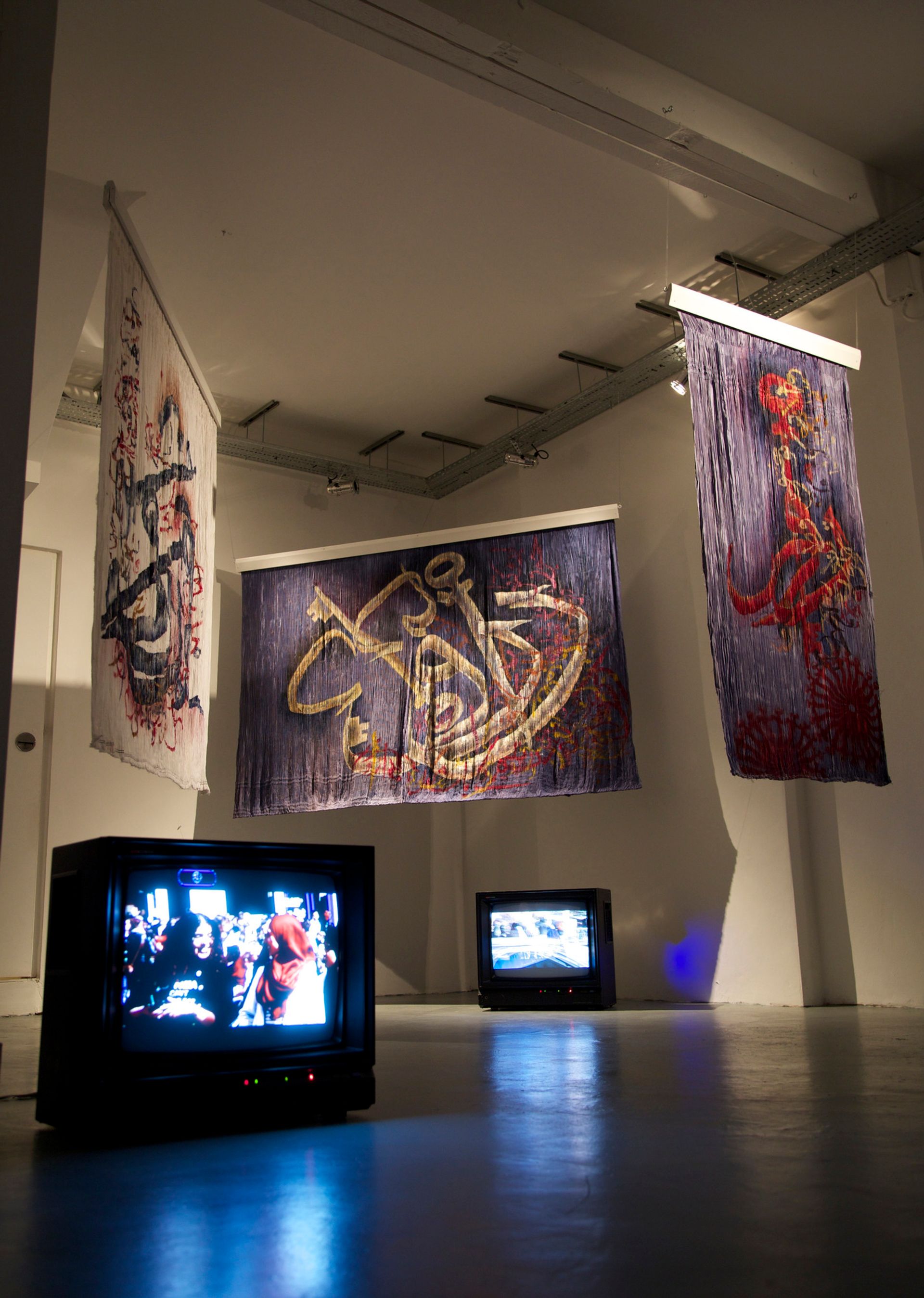Malina Suliman was 20 years old when she began spray-painting walls in her hometown of Kandahar, previously the Taliban’s headquarters in Afghanistan.
After stumbling on a graffiti course run by a British street artist in Kabul five years ago, Suliman set up her own workshops to teach young people how to spray-paint. On the streets, she painted prostrated red figures, keys with skulls for handles and skeletons draped in the region’s strict blue burqa. In the playground of Zarghona high school, her silhouetted male nudes reach to the sky.
As a woman using a guerrilla art form against unyielding conservatism in her country, Suliman attracted the attention of the Taliban as well as the international media. When suspected Taliban members shattered her father’s legs, her family fled to India. Suliman then moved to Holland, where she is finishing her studies.

Now, her first solo show in the UK, Beyond the Veil: a Decontextualisation, is at Art Represent in London (until 27 August), a gallery dedicated to presenting works by artists from conflict regions. The exhibition includes new works: three burqas that have been pleated into curtain-like hangings and painted with the key-shaped symbol that appears in her graffiti. The words for “safety”, “education” and “happiness” are written in Arabic calligraphy on the fabric, while a video piece shows Suliman herself clad in a burqa, walking through a city street in the Netherlands.
Suliman says her art is only obliquely political or feminist, and she uses the traditional garment to explore different cultural contexts and interpretations. “I wanted to take the burqa out of Afghanistan and turn it into something else,” she says. “It’s not just about being a woman, it’s about [taking] an object from someone’s everyday life [and] turning it into a performance, something else,” she says.
She is due to discuss her work later this summer, at a talk organized by Art Represent in association with the School of Oriental and African Studies, University of London.

